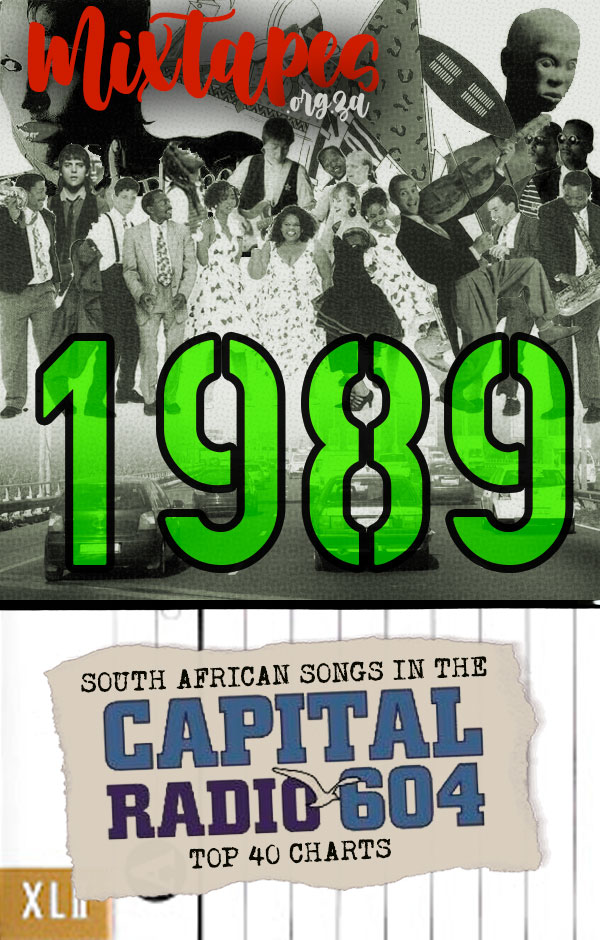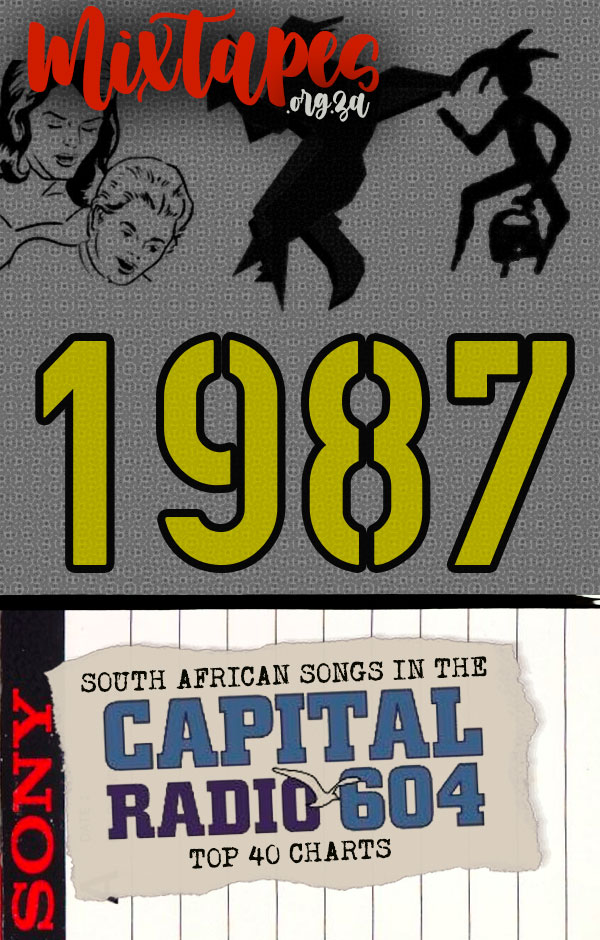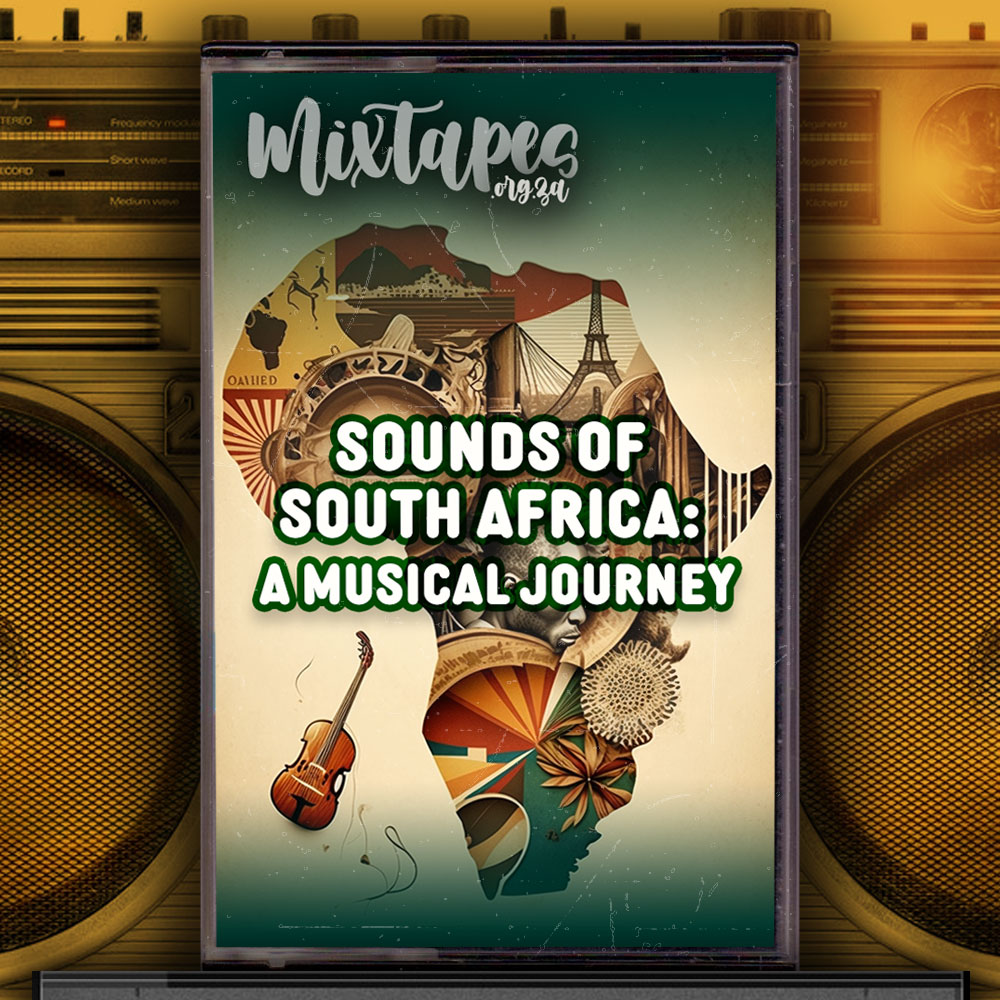
As an experiment to find out how much South African musical knowledge it had, we asked the Artificial Intelligence system called ChatGPT to compile us this week’s mixtape. The following is a transcript of our conversation and the result:
Do you know what a “mix tape” is?
Yes, I’m familiar with the concept of a “mixtape.” A mixtape is a compilation of songs or music tracks, typically from different artists and genres, recorded onto a cassette tape or other medium. Mixtapes were especially popular during the 1980s and 1990s when cassette tapes were the dominant format for music distribution. People often made mixtapes to share their favorite songs with friends, or as a personalized gift for someone special. The term “mixtape” has evolved over time and can now refer to a digital playlist or a compilation album released by an artist, although the original concept of a mixtape remains rooted in the idea of curating a collection of songs for a specific purpose or theme.
We would like you to compile a 20 song mixtape to introduce an international audience to the music of South Africa, including a wide range of styles from that country, including – but not limited to – rock, pop, jazz, folk, reggae, mbaqanga, kwaito, and a range of styles to get a broad overview. It is important that all the artists are South African.
I have compiled a mixtape of 20 songs to introduce an international audience to the music of South Africa. This list includes a wide range of styles and genres to provide a broad overview of South African music:
- Miriam Makeba – “Pata Pata” (Afro-pop)
- Johnny Clegg & Savuka – “Asimbonanga” (Afro-pop, World Music)
- Ladysmith Black Mambazo – “Homeless” (Isicathamiya, Zulu A Cappella)
- Hugh Masekela – “Grazing in the Grass” (Jazz)
- Brenda Fassie – “Vuli Ndlela” (Pop, Kwaito)
- The Parlotones – “Push Me to the Floor” (Rock, Indie)
- Freshlyground – “Doo Be Doo” (Afro-fusion, Pop)
- Abdullah Ibrahim – “Mannenberg” (Jazz)
- Mafikizolo – “Khona” (Afro-pop, Kwaito)
- Simphiwe Dana – “Ndiredi” (Afro-jazz, Soul)
- Yvonne Chaka Chaka – “Umqombothi” (Afro-pop, Bubblegum)
- DJ Mujava – “Township Funk” (House, Kwaito)
- Mahlathini & the Mahotella Queens – “Kazet” (Mbaqanga)
- Die Antwoord – “Enter the Ninja” (Alternative Hip-hop, Rave)
- Jeremy Loops – “Down South” (Folk, Acoustic)
- Black Coffee ft. Bucie – “Superman” (House, Electronic)
- Spoek Mathambo – “Control” (Electronica, Afro-futurism)
- BLK JKS – “Molalatladi” (Alternative Rock, Art Rock)
- Lucky Dube – “Different Colours/One People” (Reggae)
- Mango Groove – “Special Star” (Afro-pop, Marabi)
This mixtape covers a variety of genres and eras in South African music, showcasing the country’s rich musical heritage and diversity. Enjoy!
Thank you. Do you know what “sleeve notes” are?
Yes, I am familiar with the term “sleeve notes” (also known as liner notes). Sleeve notes are the written material that accompanies a physical music release, such as an album or an EP, typically found inside or on the packaging of vinyl records, CDs, or cassette tapes. They can provide various types of information, such as:
- Background information on the recording, composition, or production of the music.
- Song lyrics.
- Credits for the musicians, producers, and other personnel involved in the creation of the music.
- Personal anecdotes or stories from the artist(s) or other contributors.
- Artwork or photography related to the music or the artist(s).
Sleeve notes offer additional context and insight into the music, and they can help listeners form a deeper connection with the artist and their work. In the digital age, sleeve notes have largely been replaced by digital booklets, which can be accessed through certain music platforms, or by artist websites and social media.
Could you write (approximately 750 words) sleeve notes to accompany your 20 song selection?
Title: “Sounds of South Africa: A Musical Journey”
Welcome to “Sounds of South Africa,” a carefully curated compilation of 20 songs that showcase the rich and diverse musical landscape of South Africa. This mixtape is designed to introduce an international audience to a wide range of styles from this vibrant country, including rock, pop, jazz, folk, reggae, mbaqanga, kwaito, and more. We invite you to immerse yourself in these captivating sounds and explore the unique musical tapestry of South Africa.
- Miriam Makeba – “Pata Pata” (Afro-pop)
Known as “Mama Africa,” Miriam Makeba was a legendary singer and activist who brought South African music to the world stage. “Pata Pata,” released in 1967, remains her most famous song and features her distinctive vocal style alongside a danceable Afro-pop rhythm. - Johnny Clegg & Savuka – “Asimbonanga” (Afro-pop, World Music)
Johnny Clegg, often referred to as the “White Zulu,” was a British-born South African musician and anthropologist. “Asimbonanga,” released in 1987, is a powerful anti-apartheid anthem that pays tribute to Nelson Mandela and calls for unity among South Africans. - Ladysmith Black Mambazo – “Homeless” (Isicathamiya, Zulu A Cappella)
Formed in 1960, Ladysmith Black Mambazo is an award-winning male choral group that specializes in isicathamiya, a traditional Zulu a cappella style. “Homeless” was co-written with Paul Simon for his “Graceland” album and showcases the group’s intricate vocal harmonies. - Hugh Masekela – “Grazing in the Grass” (Jazz)
Hugh Masekela was a renowned South African jazz musician and trumpeter. His 1968 instrumental hit, “Grazing in the Grass,” combines elements of jazz with South African rhythms, creating an uplifting and timeless tune. - Brenda Fassie – “Vuli Ndlela” (Pop, Kwaito)
Brenda Fassie, dubbed the “Madonna of the Townships,” was a beloved South African pop and kwaito singer. “Vuli Ndlela,” released in 1997, is a high-energy track that showcases Fassie’s incredible vocal range and infectious charisma. - The Parlotones – “Push Me to the Floor” (Rock, Indie)
The Parlotones are a South African indie rock band known for their emotive lyrics and anthemic sound. “Push Me to the Floor,” released in 2009, features driving guitar riffs and a soaring chorus, making it a standout track in the South African rock scene. - Freshlyground – “Doo Be Doo” (Afro-fusion, Pop)
Formed in 2002, Freshlyground is a multiracial South African band that blends elements of Afro-fusion, pop, and folk. “Doo Be Doo,” released in 2005, is a catchy, feel-good song that celebrates life and the power of music to bring people together. - Abdullah Ibrahim – “Mannenberg” (Jazz)
Abdullah Ibrahim, formerly known as Dollar Brand, is a celebrated South African jazz pianist and composer. His 1974 composition “Mannenberg” is considered a cornerstone of Cape Jazz and serves as a symbol of hope and resilience during the apartheid era. - Mafikizolo – “Khona” (Afro-pop, Kwaito)
Mafikizolo is a South African duo that combines Afro-pop and kwaito elements to create infectious dance tunes. Their 2013 hit “Khona” showcases their signature harmonies and energetic beats, making it an irresistible addition to the mixtape. - Simphiwe Dana – “Ndiredi” (Afro-jazz, Soul)
Simphiwe Dana is a talented South African singer-songwriter known for her Afro-jazz and soul fusion. Her 2004 song “Ndiredi” highlights her emotive vocal delivery and thoughtful songwriting, earning her a place among South Africa’s most respected artists. - Yvonne Chaka Chaka – “Umqombothi” (Afro-pop, Bubblegum)
Dubbed the “Princess of Africa,” Yvonne Chaka Chaka is a South African music icon whose career spans over three decades. “Umqombothi,” released in 1988, is a catchy, upbeat song that showcases her powerful voice and a lively bubblegum pop sound. - DJ Mujava – “Township Funk” (House, Kwaito)
DJ Mujava is a South African producer and DJ known for blending house music with kwaito influences. His 2008 track “Township Funk” features hypnotic beats and syncopated rhythms, making it a dance floor favorite in South Africa and beyond. - Mahlathini & the Mahotella Queens – “Kazet” (Mbaqanga)
Mahlathini, known as the “Lion of Soweto,” and the Mahotella Queens were a groundbreaking mbaqanga group that combined powerful vocals with driving rhythms. Their 1987 hit “Kazet” showcases their unique sound, which helped popularize mbaqanga music both locally and internationally. - Die Antwoord – “Enter the Ninja” (Alternative Hip-hop, Rave)
Die Antwoord is a controversial and provocative South African group that blends hip-hop, rave, and performance art. “Enter the Ninja,” released in 2010, captures their edgy aesthetic and confrontational lyrics, making them a standout act in the South African music scene. - Jeremy Loops – “Down South” (Folk, Acoustic)
Jeremy Loops is a South African singer-songwriter and multi-instrumentalist known for his folk-infused sound. “Down South,” released in 2014, features catchy melodies, heartfelt lyrics, and a laid-back acoustic vibe that showcases Loops’ diverse musical talents. - Black Coffee ft. Bucie – “Superman” (House, Electronic)
Black Coffee is a renowned South African DJ and producer known for his soulful house music. His 2010 collaboration with singer Bucie, “Superman,” combines deep, groovy beats with Bucie’s sultry vocals, creating a captivating dance track. - Spoek Mathambo – “Control” (Electronica, Afro-futurism)
Spoek Mathambo is a South African musician and producer who pushes the boundaries of electronic music with his Afro-futuristic sound. “Control,” released in 2011, is a haunting and experimental track that showcases Mathambo’s innovative approach to music. - BLK JKS – “Molalatladi” (Alternative Rock, Art Rock)
BLK JKS is a South African alternative rock band known for their genre-defying sound that blends rock, jazz, and traditional African music. “Molalatladi,” released in 2009, features intricate guitar work and powerful vocals, making it a standout track on this mixtape. - Lucky Dube – “Different Colours/One People” (Reggae)
Lucky Dube was a South African reggae musician and one of the country’s most successful artists. His 1993 song “Different Colours/One People” is a call for unity and understanding, reflecting the spirit of the post-apartheid era and showcasing Dube’s distinctive reggae sound. - Mango Groove – “Special Star” (Afro-pop, Marabi)
Mango Groove is a South African band that fuses marabi, kwela, and pop music to create a lively and upbeat sound. Their 1989 hit “Special Star” features catchy horn arrangements and infectious rhythms that capture the essence of South African music.
“Sounds of South Africa” aims to provide a comprehensive introduction to the music of this incredible country. The tracks on this mixtape represent a broad spectrum of genres, each with its own unique flavor and cultural significance. South Africa’s music scene is a testament to its rich history, resilience, and diverse heritage, and we hope that this collection inspires you to delve deeper into the sounds and stories of South Africa.
As you listen, you may notice themes of unity, resistance, and hope woven throughout the mixtape. These themes reflect the struggles and triumphs of South Africa’s past and present, showcasing the power of music to connect people across borders and cultures. Whether you’re dancing to the upbeat grooves of kwaito, swaying to the soulful melodies of Afro-jazz, or losing yourself in the hypnotic rhythms of house music, “Sounds of South Africa” offers a musical journey you won’t soon forget.
We encourage you to explore the works of the artists featured on this mixtape, as well as other musicians from South Africa who continue to shape the country’s diverse and evolving musical landscape. Thank you for joining us on this journey, and enjoy the sounds of South Africa!
Thank you. That is excellent work. Could you suggest a prompt to feed to an image generating tool to create a cover image for this mix tape?
Certainly! To generate a cover image for the “Sounds of South Africa” mixtape using an image-generating tool, you can use the following prompt:
“Create an album cover for a mixtape titled ‘Sounds of South Africa.’ The cover should evoke the rich cultural diversity and vibrant musical heritage of South Africa. Incorporate elements such as traditional African patterns, musical instruments, and the South African landscape, blending them together in a visually striking and harmonious composition. The color palette should be warm and inviting, reflecting the energy and spirit of South African music.”
This prompt should provide enough detail and context for the image-generating tool to create an engaging and visually appealing cover image for the mixtape.
Thank you
You’re welcome! If you have any more questions or need further assistance, please don’t hesitate to ask. I’m here to help. Enjoy your South African mixtape, and have a great time exploring the music!


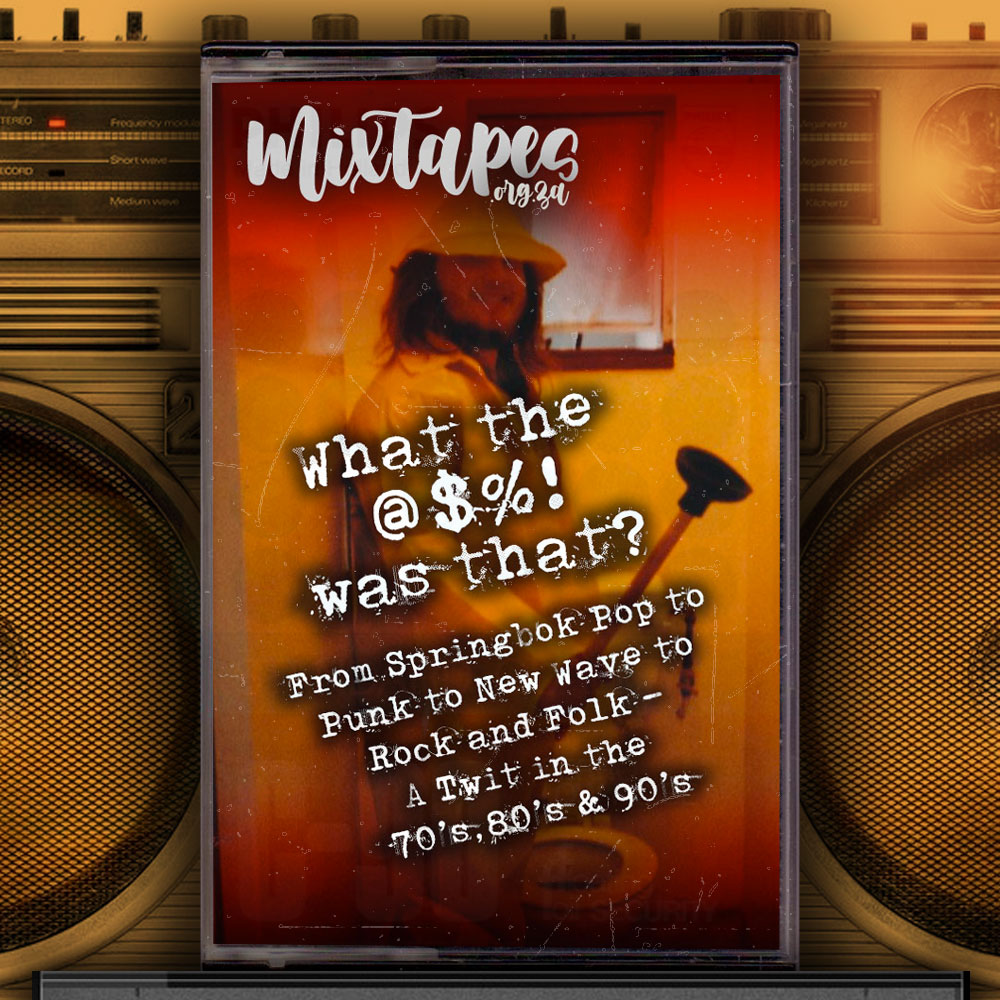
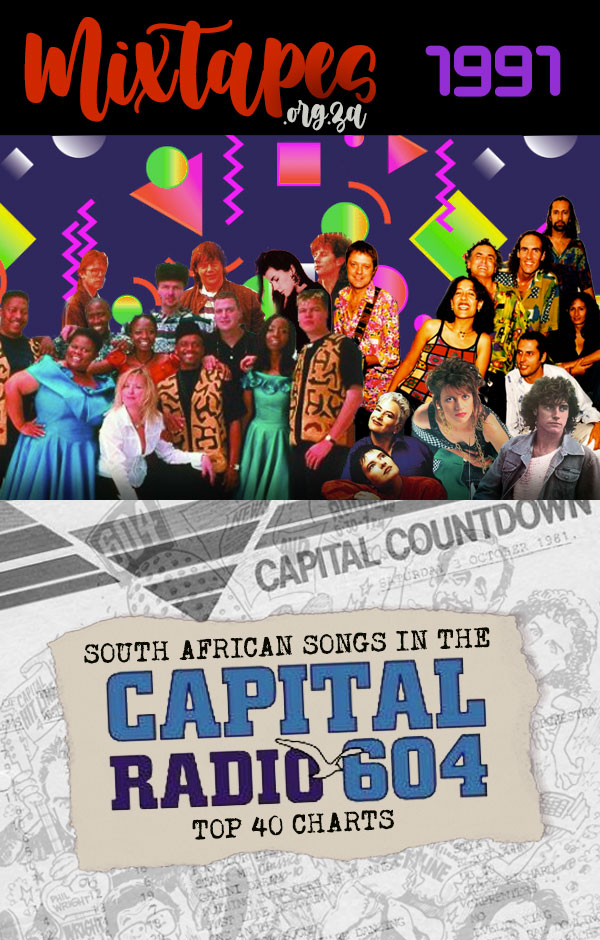
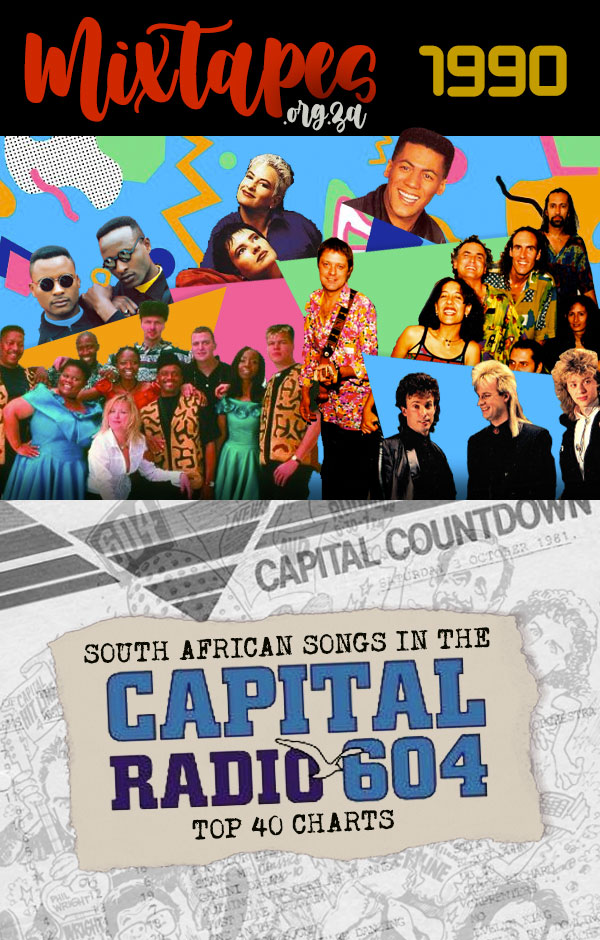
 1988 was a poor year for South African musicians on the Capital Countdown: only eight artists with nine songs made the Top 40 (there were two songs by
1988 was a poor year for South African musicians on the Capital Countdown: only eight artists with nine songs made the Top 40 (there were two songs by 